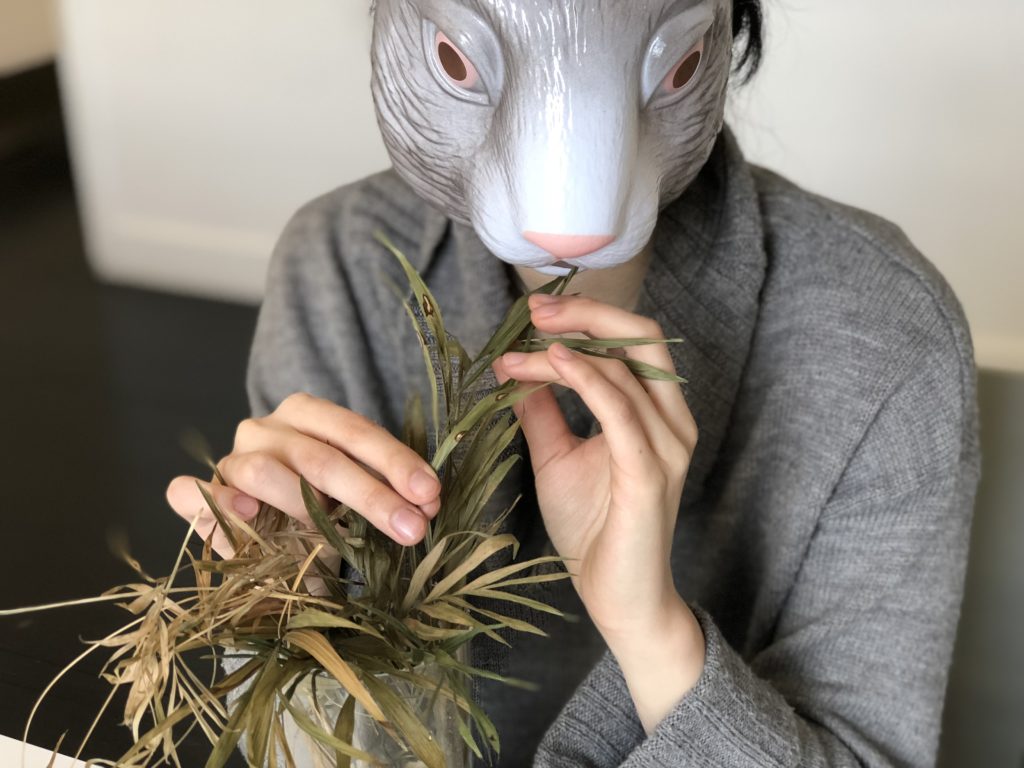
Parsons Students Envision Future Applications of Biotechnology at 2018 Biodesign Challenge
A “microbial time machine” that empowers you to collect, sequence, explore, and bac-up your previous microbial states.
Technology that uses a chip to genetically modify human capacity to acquire, manage, and share nutrition.
These are the two experimental and forward-thinking projects produced by students at The New School’s Parsons School of Design who participated in the recent Biodesign Challenge, a science-fair style competition that offers art and design students the opportunity to envision future applications of biotechnology. The competition took place June 21 and 22 at the Museum Of Modern Art and Parsons.
Led by Jane Pirone, dean of Parsons’ School of Design Strategies, and Parsons faculty member Jenifer Wightman, students shared projects that were the culmination of a semester spent envisioning how cells, microbes, and other living things can remake the products and processes of our made world.

Arian Ghousi, MFA Industrial Design ’19; Juliette Stephanie Van Haren, MFA Industrial Design ’19; Yuxin Cheng, MFA Transdisciplinary Design ’19; and Ignacio Garnham Brandes, MFA Transdisciplinary Design ’19, presented bactoyou (pictured above), a “microbial time machine” that allows users to “jump back in time” and reconstitute their present gut microbiome based on specific previous states.
“bactoyou offers a solution to microbiome changes or depletion as a result of antibiotic treatments, chemotherapy, long term travel and many other threats and events,” according to the students. “By using bactoyou, users will become more aware of their microbiome by collecting samples in an easy and user-friendly way, breaking the paradigms of traditional fecal sampling methods and bridging users with science through an engaging platform. Through this service, we aim to inform users of the importance and possibilities that their microbiome data holds for future health and well-being, while at the same time promoting behavioral change towards a healthier way to relate with our bacterial self.”
Tung lin, MFA Transdisciplinary Design ’19; Jae kyong Cheong, MFA Design and Technology ’18; and Siho Chang, MFA Photography ’18 presented Beyond 100%, a technology that uses a chip to genetically modify human capacity to acquire, manage, and share nutrition.
“In 2070, as a result of 10.5 billion people, there is an emerging crisis of food shortage,” according to the students. “People live under the global economy in its entirety which provide them with maximum possibility to live. To achieve that, this biotech solution endows humans with other species capacity to effectively and enjoyably eat other natural resources such as hay, algae, fungi and insect. For all mankind’s survival, any citizen who intakes above 100 percent of the recommended amount should share with others who are undernourished. 30% of excess nutrition is taxed to the global network, which redistribute nutritions to the poor people in the region, and generate energy for the city.”